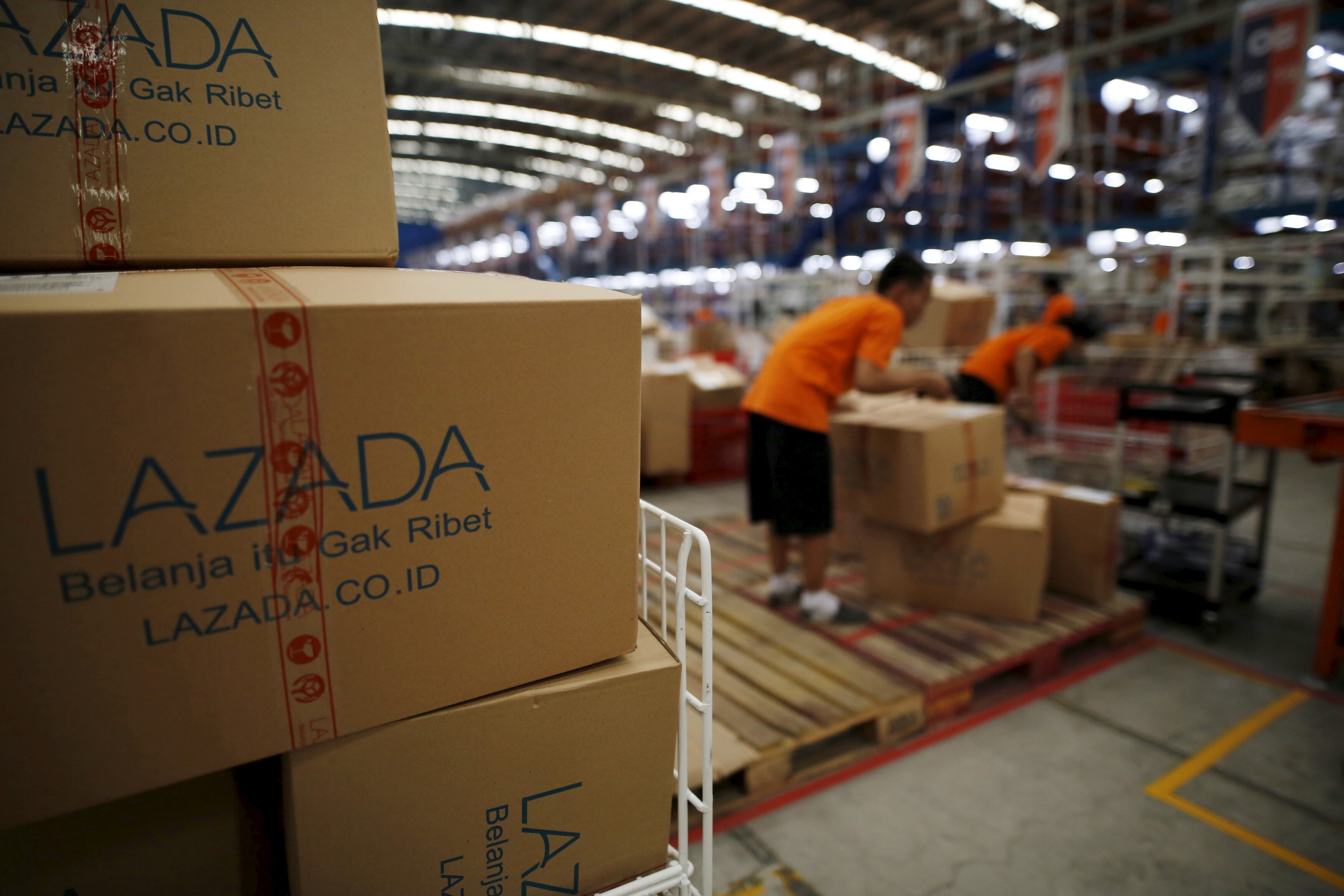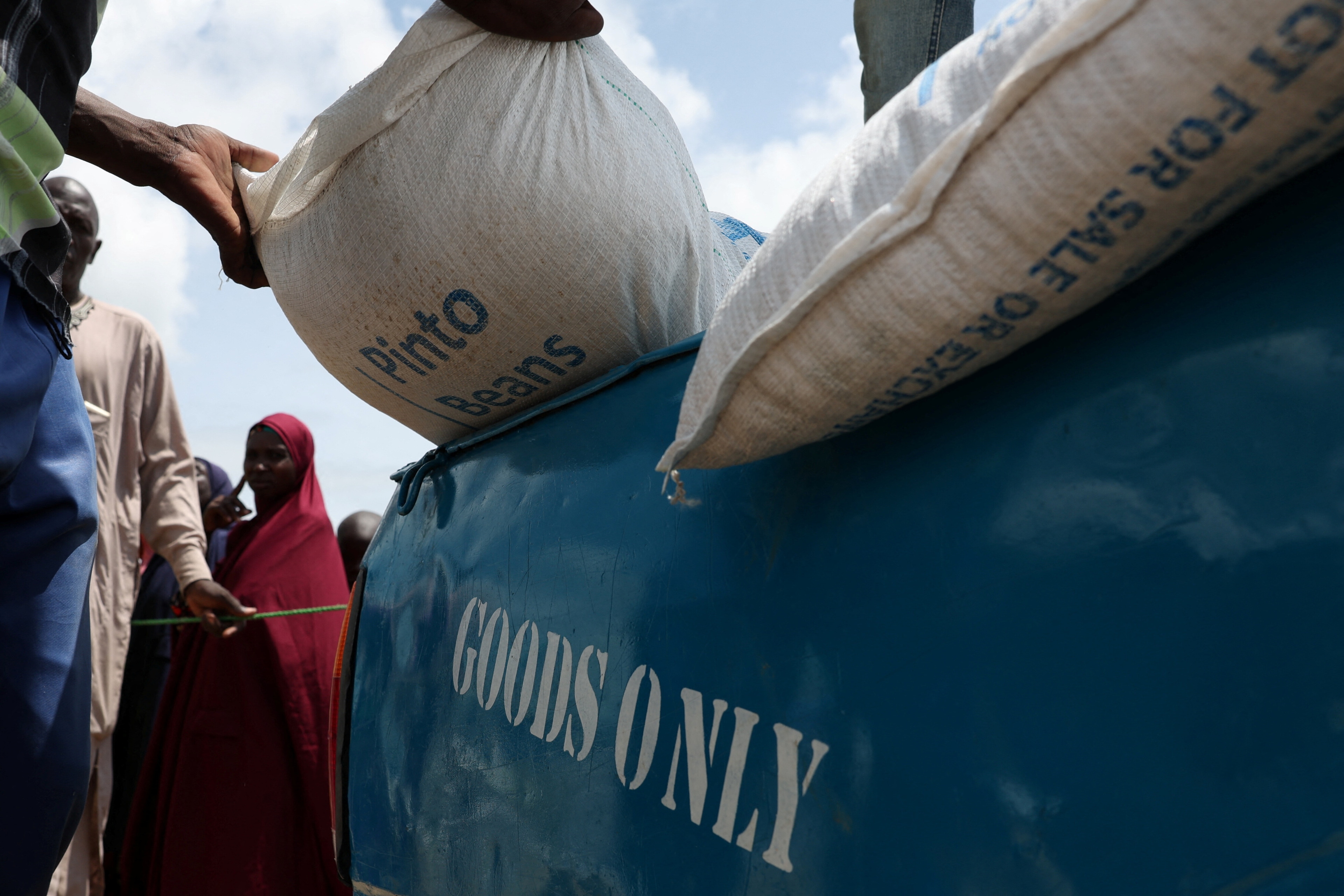Windsor Framework: How does the new post-Brexit trade deal work?

The Windsor Framework has yet to be ratified by the British parliament. Image: Reuters/Dan Kitwood
Listen to the article
- Britain and the European Union have agreed a new trade deal for Northern Ireland.
- The Windsor Framework aims to address trade and border sensitivities by introducing ‘red’ and ‘green’ lanes for imports from the UK mainland.
- The new deal still requires political approval in the UK and the EU.
Britain and the European Union (EU) have reached a post-Brexit trade deal designed to put an end to tensions over the movement of goods.
The deal, known as the Windsor Framework, seeks to overcome sensitivities specifically around trade across the border of North Ireland – an issue that has dogged the United Kingdom since Britain voted to leave the EU in 2016. The Framework was announced by the British Prime Minister Rishi Sunak and Ursula von der Leyen, President of the European Commission, on 27 February, 2023.
While agreement has been reached between the British government and the EU, the Windsor Framework has yet to be ratified by the British parliament. Members of parliament will vote to approve or reject the deal on a date to be decided. On the other side of the English Channel, a qualified majority of EU member states must also approve the deal.
Northern Ireland and Brexit
When Britain decided to leave the EU, it raised a question about the status of the land border between Northern Ireland (part of the UK) and the Republic of Ireland (a member of the EU). As the BBC explains, this is a sensitive topic because of the troubled political history of Northern Ireland. It was feared that introducing customs checks along the land border could lead to instability.
Instead, the British government introduced customs checks at ports in Northern Ireland, for goods heading to the Republic of Ireland via the UK mainland. These checks were part of a policy known as the Northern Ireland Protocol.
Unionists in Northern Ireland (who support Northern Ireland remaining part of the UK) questioned this move because having checks in place effectively created a border between the rest of the UK and Northern Ireland.
The checks were also unpopular with businesses who argued they added unnecessary bureaucracy, additional costs and delays. The Windsor Framework points out that under the Northern Ireland Protocol, a single supermarket truck carrying agrifood products could be required to produce as many as 500 officially-signed certificates, costing up to $180 per certificate, and adding hours of additional work.

What's in the Windsor Framework?
The new deal will introduce separate processes for goods travelling from the UK mainland to Northern Ireland – and those with a final destination in the Republic of Ireland (the EU).
Goods going to Northern Ireland will pass through a ‘green’ lane with far fewer physical checks and a major reduction in paperwork. Shipments will now require just one document. A previous requirement to comply with EU regulations on VAT and alcohol duties will also be retired. To qualify to use the new 'green lane', companies that ship goods need to be part of the existing UK Trusted Trader scheme or are required to sign up to the new internal market scheme.
Goods being shipped onwards to the Irish Republic will pass through a ‘red’ lane and would still be subject to checks to ensure they comply with EU regulations. The use of ‘red’ and ‘green’ lanes to distinguish trusted traders and those with extensive trading history is in line with international best practices on customs risk management.
The opening of a ‘green’ lane will free up the movement of a wide range of goods. Fresh meat produced to UK standards will be allowed to enter Northern Ireland as long as it is clearly labelled. Restrictions and the threat of a total ban on the import of UK sausages, seasoned lamb joints and other meat products under the current customs regime have proved controversial.
Under the Windsor Framework the distribution of British medicines will be allowed across Northern Ireland. Parcels being sent by individuals to friends and family will not require customs paperwork and online shopping will also be exempt.
Agricultural and garden products such as tree saplings, seed potatoes and other plants will be able to enter Northern Ireland under the same biosecurity arrangements as the rest of the UK internal market. They were banned under the previous customs arrangements.
Challenges ahead?
In principle, the two-lane system offers a simple solution to a complex problem spanning both trade and a difficult and violent political history.
"In total this package delivers on the promises of Brexit while preserving the hard-won gains of the past 25 years in Northern Ireland – bringing certainty and providing the basis for a more sustainable and prosperous road ahead for Northern Ireland and the whole United Kingdom," the Framework states.
As ever, the devil may be in the detail and progress may not be smooth. What happens, for example, when ‘red’ and ‘green’ lane products are being transported in the same shipping container?
More complex challenges may lie in the ability of ports in Northern Ireland to adapt processes and technology to work with a split-lane goods receiving process. Other stakeholders, including customs services, sellers based on the UK mainland and buyers on the Island of Ireland, may need new ecosystems for data sharing and other technological requirements.
The Windsor Framework is clear that systems will need to be in place to, "ensure that there is real-time data on goods movement to support risk analysis, removing the need for extensive bureaucracy and checks that will continue to apply to goods moving on into the EU".
Local influence on European law
The Windsor Framework also contains a mechanism known as the Stormont Brake.
The brake gives politicians at the Northern Ireland Assembly at Stormont, Belfast the ability to block new EU legislation from applying in Northern Ireland if they feel it would negatively affect their constituents. If the EU brake is activated by 30 politicians from at least two parties, new EU rules will not be implemented.
"A new Stormont Brake will apply to new or amended EU goods rules that would have a significant impact on the day-to-day lives of businesses and citizens," the Framework reads.
Investing in the future
Besides ensuring the new import process works effectively to deliver the terms of the Brexit deal, creating efficient port and customs operations that speed the passage of free-flowing trade will generate greater opportunities to attract new business and investment to Northern Ireland.
The Windsor Framework provides a potential opportunity to smooth out some of the post-Brexit hurdles. Political buy-in and mutual trust allied to technical and logistical excellence will be crucial to delivering on what it promises.
What is the World Economic Forum doing about digital trade?
Don't miss any update on this topic
Create a free account and access your personalized content collection with our latest publications and analyses.
License and Republishing
World Economic Forum articles may be republished in accordance with the Creative Commons Attribution-NonCommercial-NoDerivatives 4.0 International Public License, and in accordance with our Terms of Use.
The views expressed in this article are those of the author alone and not the World Economic Forum.
Stay up to date:
Ireland
Related topics:
Forum Stories newsletter
Bringing you weekly curated insights and analysis on the global issues that matter.







